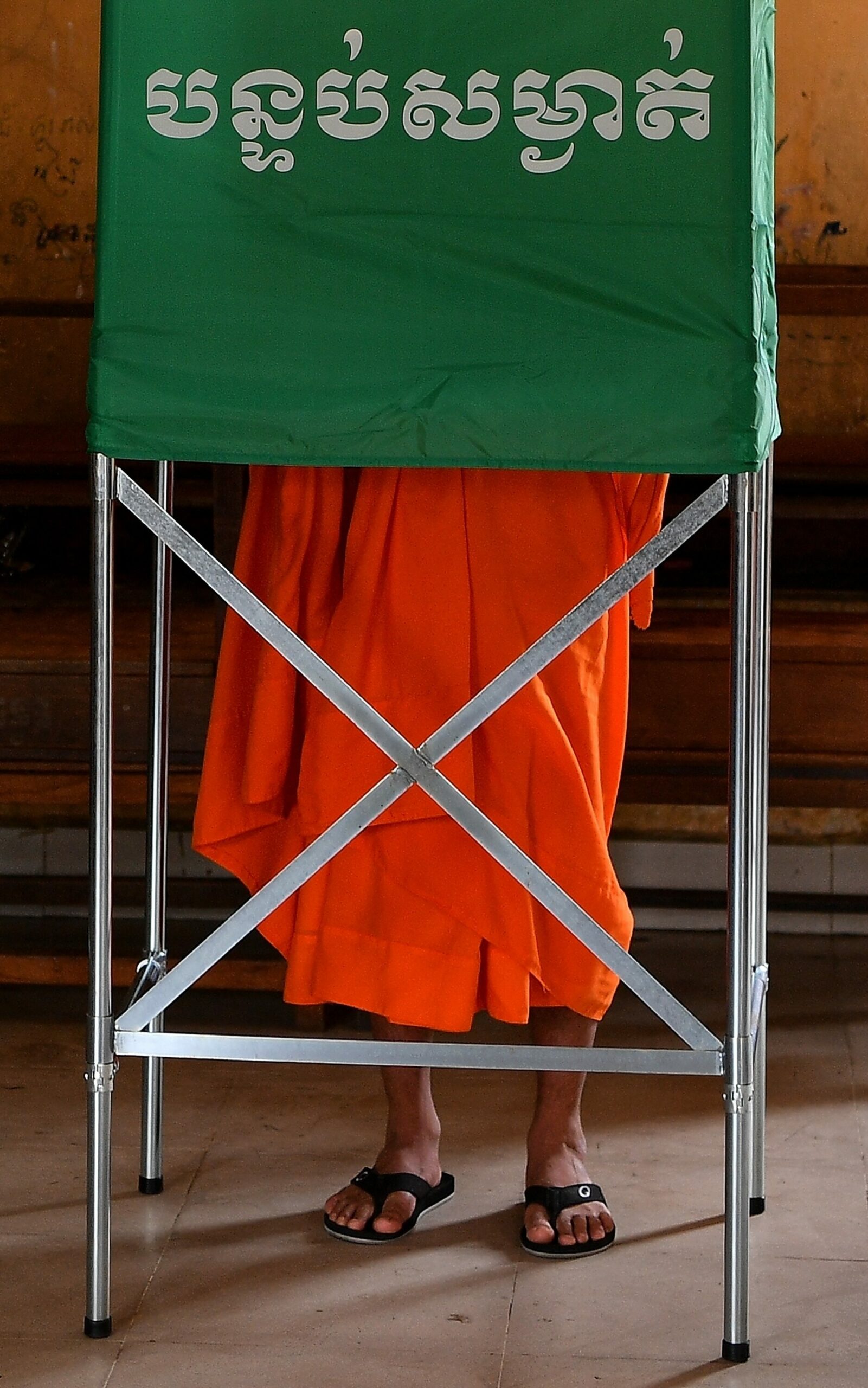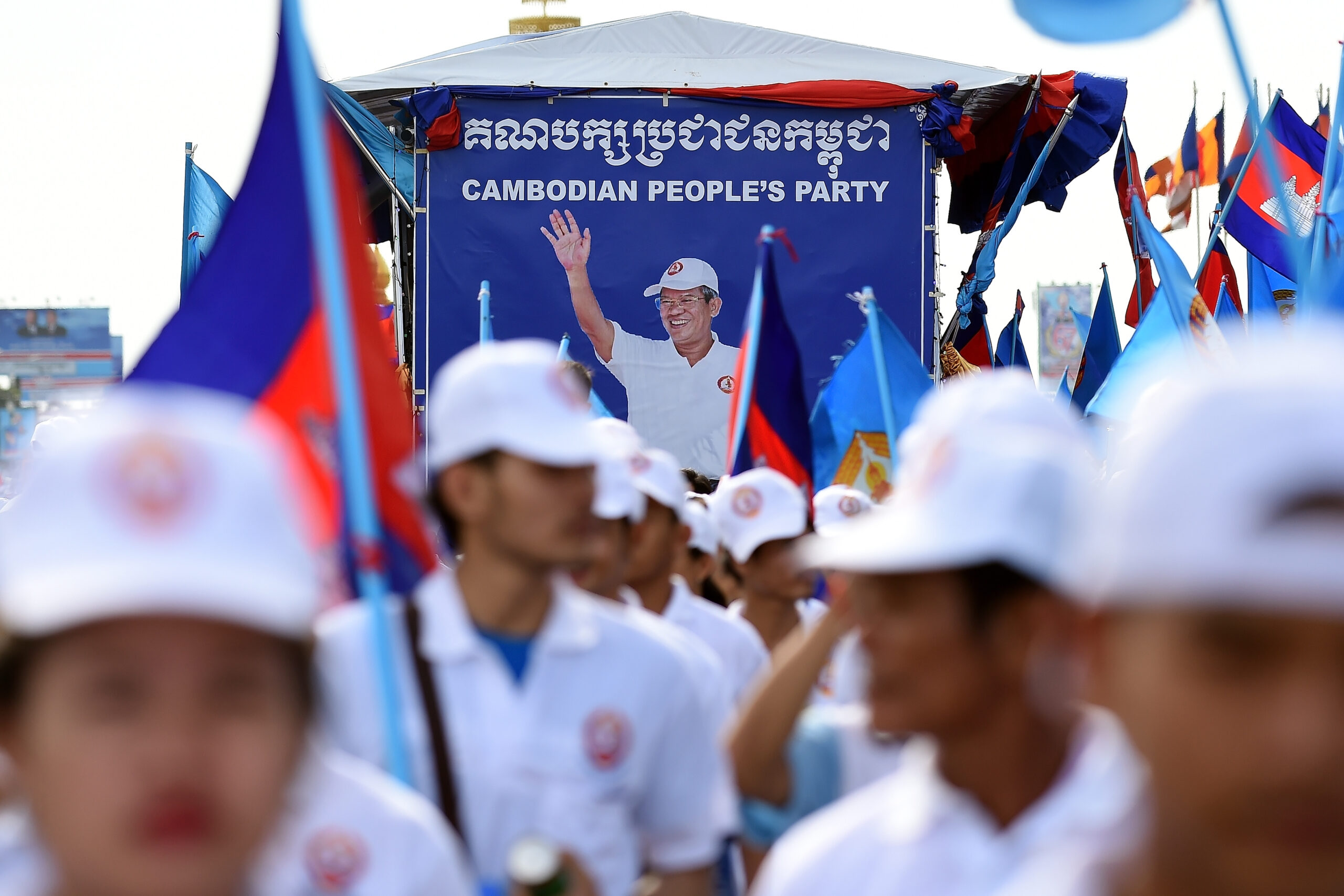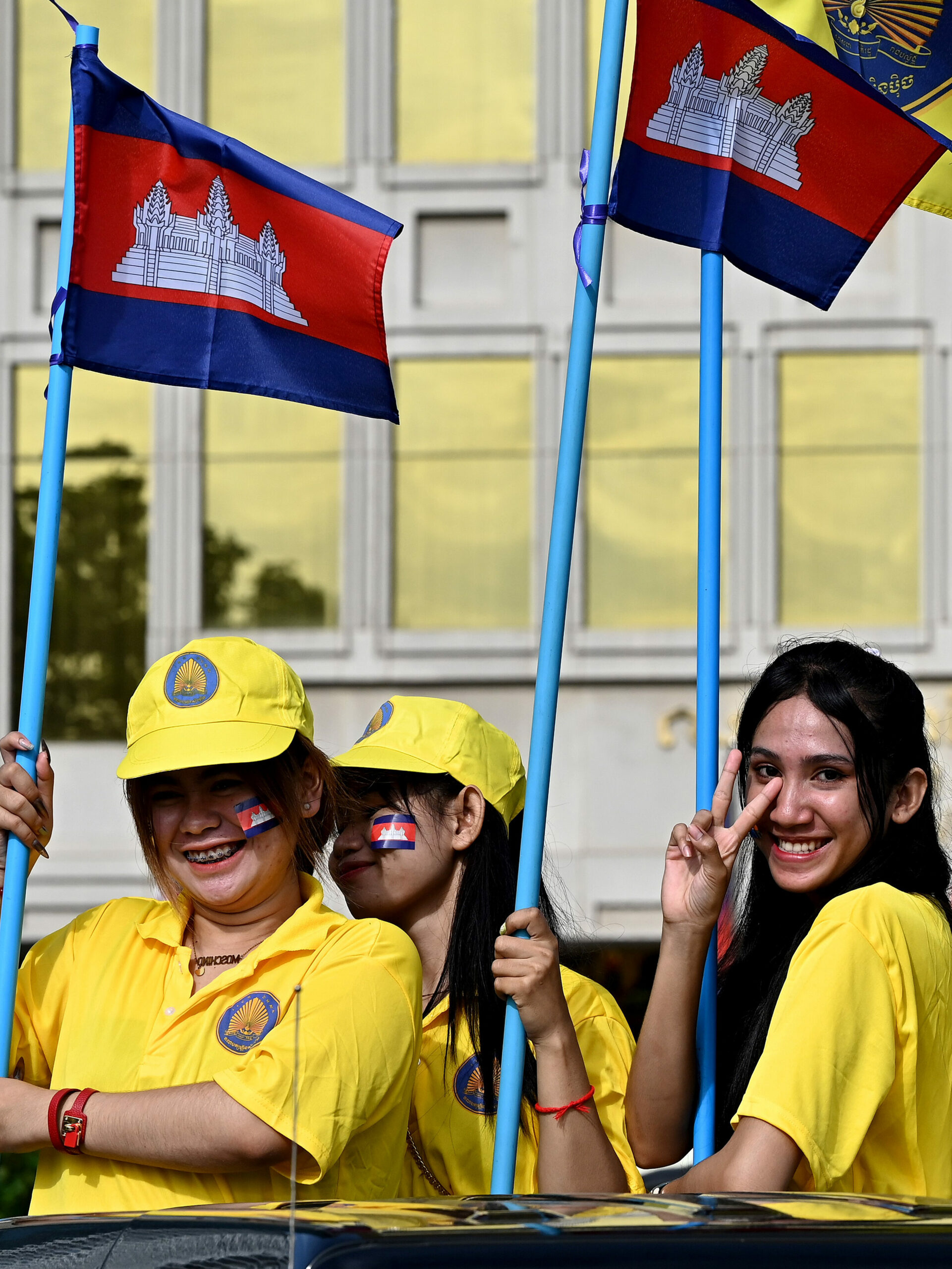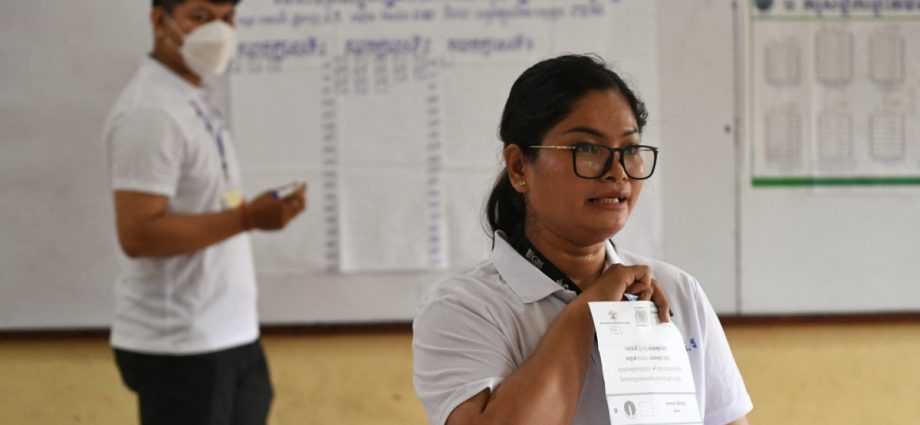To vote or not to vote. That’s the dilemma young Cambodian voters are facing ahead of the upcoming election on 23 July.
“I must go, but it’s not coming from my willingness,” said Nget Phorn, 24, a Buddhist monk and a member of the non-governmental organisation Youth for Social Development and Democracy (YSDD). “Although there is no big opposition party like it used to be, we don’t want any villagers [neighbours] to observe and say, ‘Why isn’t this guy going to vote?’”
With almost two-thirds of its citizens younger than 30, Cambodia is one of the most youthful countries in Asia. Most of its population has seen only one person in power – Prime Minister Hun Sen, who has ruled the country for 38 years and is now preparing a dynastic transfer to his eldest son, military commander Hun Manet.
As the public readies for the general elections, a carefully curated contest in which the ruling Cambodian People’s Party (CPP) is expected to win a landslide victory against a tightly monitored opposition, young and first-time voters who spoke with the Globe showed little enthusiasm. More than a dozen young people said they felt social pressure to cast their vote for their ideal political leader, even as they felt they didn’t really have a choice.
The Cambodian government has long fostered the development of large, officially sanctioned youth groups that can make up a reliable bloc of fresh-faced CPP support. Politically conscious youths outside that system said they had their own motivations for voting, such as a new law barring non-voters from running for office in the future, but were otherwise uninspired.
“I think with the 2023 election, nothing will change except for the power transfer from father to son,” said Kuy Chetra, a 22-year-old student and YSDD member. “Also, in the upcoming seventh mandate of the national election, there is no policy for youth. So the question is, why do we go voting if there is no policy for the youth?”
In May, the National Election Committee disqualified the main opposition Candlelight Party over a paperwork requirement. The party had won about 22% of the popular vote in the 2022 nation-wide commune elections, in which voters select local representatives. Though this year’s ballot will feature 17 other minor parties, these groups collectively garnered less than 5% of the vote last year.
Weeks after rejecting Candlelight, the National Assembly approved an amendment to the election law to prohibit citizens from spoiling their ballot or encouraging others to boycott the vote. Rushed through to prevent opposition supporters from making a silent protest against the disqualification, the law has already been used to arrest four Candlelight officials.
Ahead of the elections, students told Globe that representatives of the CPP held short lectures in university classrooms ‘teaching’ the students how to tick the right box on the ballot. A student in school on a government scholarship, who asked to speak anonymously for fear of losing their funding, said they felt increased pressure to side with the ruling party lest they be stripped of their financial support.
A different Royal Phnom Penh University international relations student, who also asked for their name to be withheld for fear of repercussions, said they didn’t plan on voting.

“This election is not fair,” the student said. “We are pressured to vote for someone we haven’t really chosen. And even if I voted for some minor opposition party, there would be no chance for them to have enough seats in parliament to make any real difference.”
The abrupt removal of Candlelight from this year’s ballot sparked global chastisement over the fairness of the upcoming elections and an outcry from local civil society. Though he intended to vote, Phorn, the young monk, saw little promise in the number of parties on the ballot.
“There are many parties participating in this election but their power isn’t balanced enough to compete [with the ruling party],” he said. “I want to see the competition between two [or more] parties, and an open atmosphere for people to fully exercise their rights to vote and choose their leader.”
Still, partly because of dedication to their social duty to choose their leaders or otherwise due to community pressure, most of the interviewed students decided to vote despite concerns about the atmosphere of political pressure.
Groups similar to YSDD burgeoned after the UN-administered 1993 election but have been increasingly marginalised in the process of governance. Youth participation in Cambodian politics has instead been structured through a top-down system of organisations that officially deny any partisan agenda but have served as a pipeline for the ruling elite.
“Historically, big youth movements have always been linked to the government while other smaller movements have had little influence or impact [after 1993],” said Astrid Norén-Nilsson, a researcher of Cambodian politics and senior lecturer at Lund University in Sweden.
These main groups include the Union of Youth Federations of Cambodia (UYFC), the Cambodian Red Cross and Cambodia Scouts. All are registered non-governmental organisations but are linked to the Ministry of Education, Youth and Sport, said Norén-Nilsson, and have long been seen as unofficial youth wings of the CPP.

The UYFC had an estimated 120,000 members as of 2018 and is led by Hun Many, a son of the prime minister and a CPP lawmaker.
Though these groups have deeper origins, the government has pushed their expansion since the early 2010s, Norén-Nilsson explained.
“The Ministry of Education has a quota for each group and sent the list out to the schools to recruit enough young people to join each organisation,” she said. “Some of those people have become very important in a really short time, such as in ministries. These groups have been a stepping platform [for the youths] to launch their career in politics.”
However, many young Cambodians prefer to keep their distance from partisan politics.
For first-year law student Ream Sreypichrothana, 19, this is her first time voting. She is now seeking answers to her long-standing questions about the election process.
“I always wondered why there was a single party only and there was no main opposition,” she said. “I am particularly interested to see how the 2023 election will turn out. I am aware that the [Candlelight Party] could not join the competition. This atmosphere is not acceptable for youths.”
Sreypichrothana, a member of another group, the Youth Resource Development Programme (YRDP), believes young people can exert their influence in a democratic way by actively engaging in social issues, caring about each other and working collectively to demand their rights.
“We must train ourselves and think critically and have a positive influence on society. By actively participating in social affairs, following news, and speaking the truth without fear, the influence of youth will spread to the next generation,” she said.

After discussing with her peers sitting around a table, she resolved to go to vote despite there being “no free and fair election”.
While some young people might decide against formally casting their votes, many have their own political strategy of going online to engage with social issues, according to Ou Virak, founder and president of local independent think-tank Future Forum.
“They are active while also being cryptic, indicating they are indeed participating in the political process and they are willing to have a say in their country’s political decisions,” said Virak, who’s been working with young adults for a decade.
“The fact that they don’t turn out to vote formally doesn’t mean they don’t participate in the political process,” he added. “If they are not taking it on the streets, it doesn’t mean they are not shaping their future or have no interest in a change.”
Some young people may choose an optimistic approach to the vote itself. Soung Pichchanbormey, 21, is looking on this brighter side.
“I did hear about the complaints. But I believe we can still have a choice,” she said. “There are 18 parties. We need to look into the policy of each party and just go with the one we are interested in.”
Pichchanbormey believed that even a few representatives of small opposition parties in Parliament could make a difference.
“There will be a dialogue and small parties can participate in political decisions for our country,” she said, adding that small changes are the key to long-term developments.


